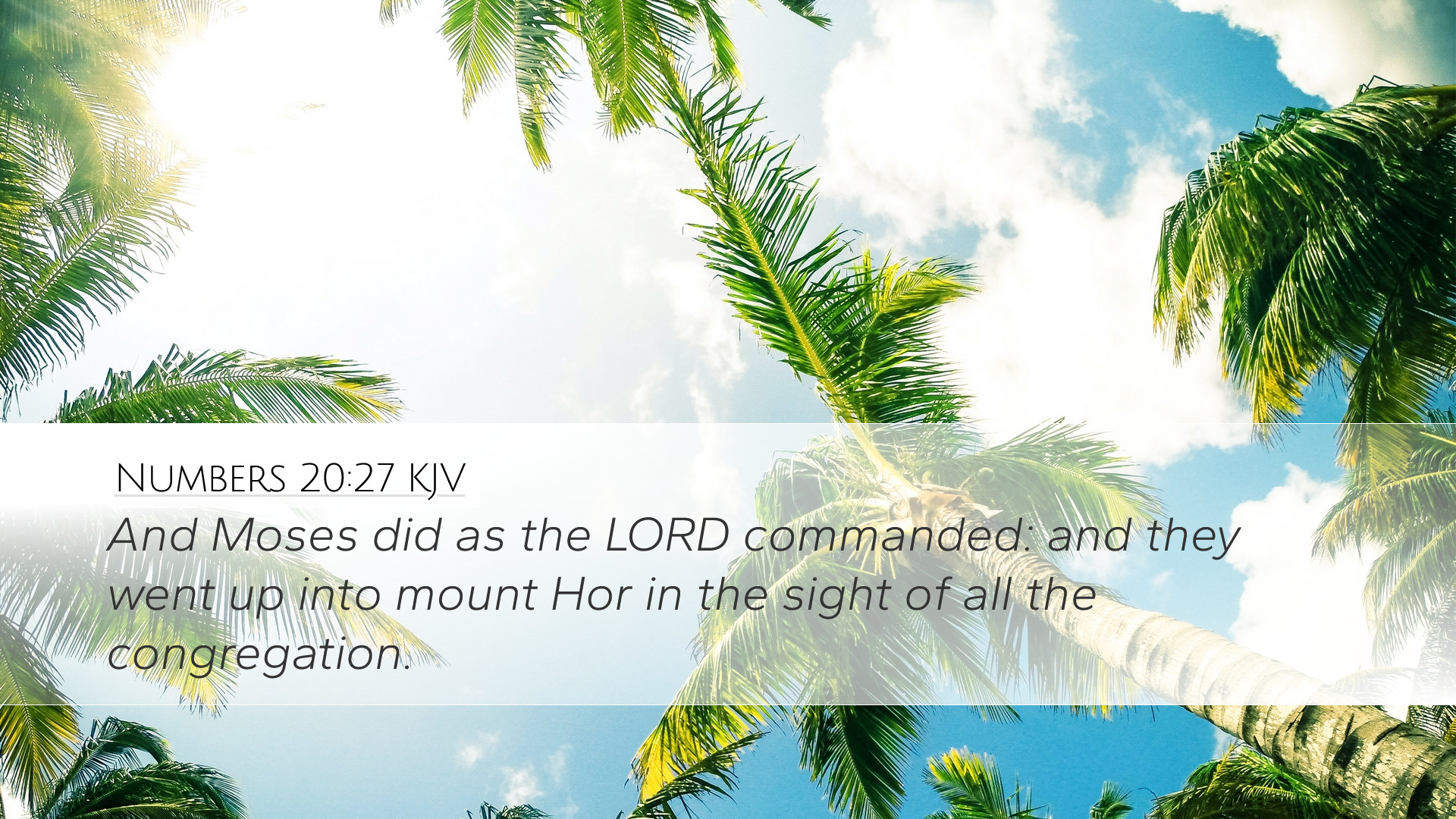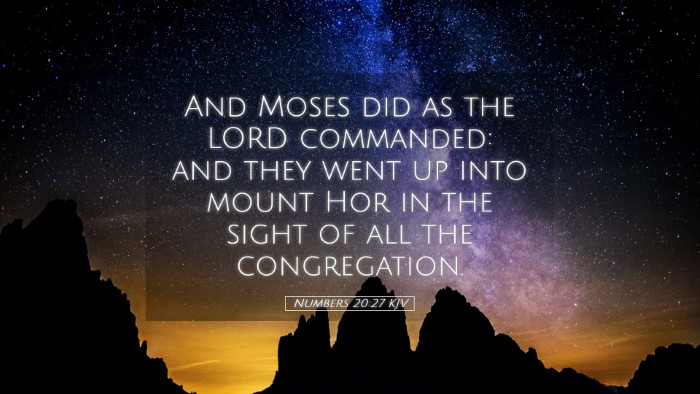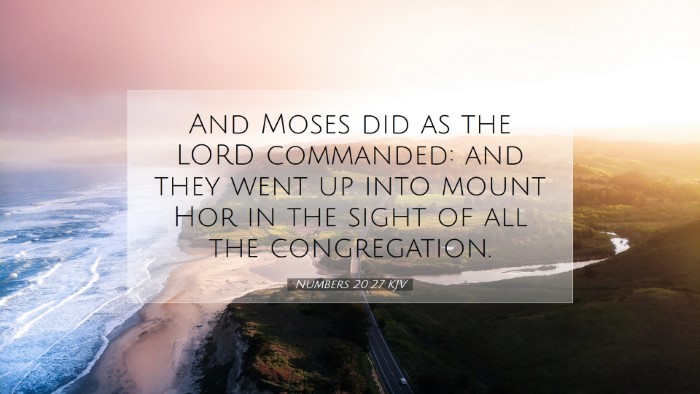Commentary on Numbers 20:27
Numbers 20:27 reads: "And Moses did as the Lord commanded: and they went up unto mount Hor in the sight of all the congregation."
Introduction
This verse captures a significant moment in the life of Moses as he prepares for the transition of leadership. It illustrates his obedience to God's command and the impending change that would lead to entering the Promised Land.
Contextual Background
Located in the wilderness narratives, this passage occurs during a period where the Israelites faced revolt, disappointment, and divine discipline. The journey from Egypt to Canaan had been fraught with challenges, and Moses’ leadership had been pivotal in guiding them through these trials.
Moses’ Leadership Role
Moses was not only a prophet but also a mediator between God and His people. Throughout his ministry, he exemplified the qualities of obedience, humility, and steadfastness. In this context, Moses’ command to ascend Mount Hor serves both as a physical and symbolic act of obedience to God’s will.
Verse Analysis
In Numbers 20:27, the phrase "And Moses did as the Lord commanded" highlights his faithful adherence to God’s instruction. This obedience reflects a key theme in Moses' life—whenever faced with divine directives, he acted with promptness and reverence.
The Mountain of Hor
Mount Hor is noted for being the site of Aaron’s death (Numbers 20:28). Ascending the mountain symbolizes a transition, marking the closing of a significant chapter in the history of Israel. It also serves to remind the congregation of the consequences of disobedience, as Aaron, like Moses, had been part of the unfaithful incident at Meribah.
In the Sight of All the Congregation
The phrase "in the sight of all the congregation" emphasizes the visibility of this action to the people. It is a reminder that spiritual transitions should be acknowledged publicly, reinforcing the collective faith of the community. Under Moses’ leadership, the act served to provide closure and the affirmation of God’s ongoing work among His people.
Theological Insights
- Obedience to God’s Command: The action of Moses reinforces the importance of obedience. As noted by Matthew Henry, true faith is demonstrated through action, executing God’s commands without hesitation.
- Transition of Leadership: Aaron’s death leads to a moment of reflection on the nature of leadership within Israel. Albert Barnes posits that leadership comes with accountability before God, thus when one leader transitions, it is vital for the community to witness and understand the reasons.
- The Role of Community: The entire congregation’s attention during this moment suggests a collective understanding of the ramifications of Moses’ actions. Adam Clarke notes that witness is vital for communal verification of God’s workings and acceptance of His plans.
Practical Applications
This passage offers profound lessons for pastors, students, and theologians regarding leadership in a faith community. It calls for understanding the weight of obedience in leadership and the necessity of transparency with congregations during times of change.
- Faithful Leadership: Pastors should continually strive to lead their congregations in a manner that reflects God’s intent, embracing both the joys and burdens of their duties.
- Encouragement for Collective Faith: Congregations are reminded of the strength found in unity, especially when transitions are addressed. There is a communal aspect to faith that should encourage and uplift all members.
- The Witness of Actions: Every act of obedience serves as a testament to one’s faith. Leaders are encouraged to live in a way that exemplifies biblical values, recognizing they are being observed by their community.
Conclusion
Numbers 20:27 is a poignant reminder of the intricacies of obedience, leadership, and community in the biblical narrative. The insights gathered from respected commentaries provide richness to our understanding, urging a deeper reflection on how God leads His people through faithful servants. In this transition, both Moses and Aaron reflect the complexities and commitments of leadership, serving as examples to contemporary leaders.


